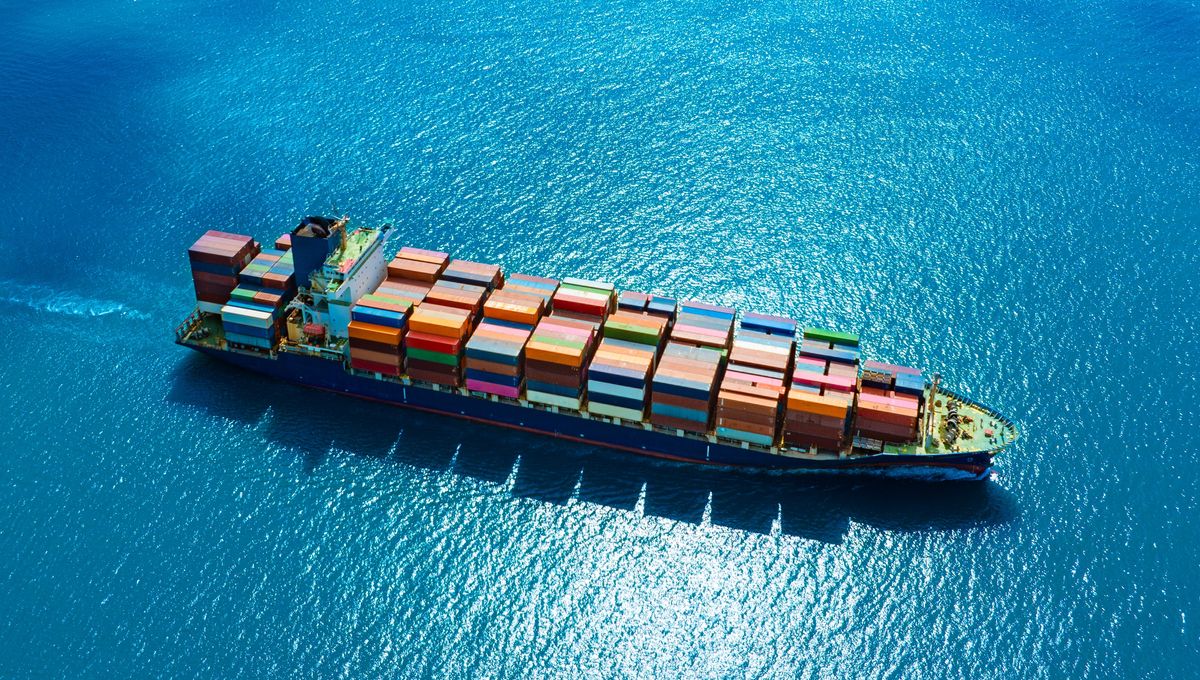
The high seas haven’t been this sketchy since the Golden Age of Piracy. To navigate these tricky waters, a US-based tech start-up called Blue Water Autonomy is promising to “usher in” a new era of autonomous ships. They’ve just received $14 million in seed funding and have already begun saltwater testing in the real world.
Founded in 2024, the company is being led by a team that has previously worked for Amazon Robotics, iRobot, and the US Navy. They believe the need for autonomous ships has been amplified by a number of recent developments in the wider world, particularly in the realm of asymmetrical warfare.
As one example, since 2023, Houthi insurgents have disrupted the Red Sea, which serves as a vital gateway to Egypt’s Suez Canal, a key trade route between Europe, Asia, and Africa. In response to the war in Gaza, they’ve targeted ships linked to Israel, including those from the US and UK, demanding an end to the war. The crisis has highlighted how vulnerable global shipping lanes are to geopolitical tensions, which are becoming increasingly fraught.
Furthermore, the US is facing more competition from China in the Pacific. Blue Water Autonomy believes that Chinese shipyards are producing vessels at a speed the US industrial base struggles to keep up with. To bridge the gap, they believe the US Navy should turn to the large-scale deployment of autonomous ships.
“Sea power has been the bedrock of America’s security and prosperity for centuries. We believe the entire maritime economy is in need of transformation – it starts with supporting the US Navy which needs dynamic industrial partners to bring top technology to its sailors, including ocean-going, fully autonomous ships,” Rylan Hamilton, co-founder and CEO of Blue Water Autonomy, said in a statement.
“The US military needs more than incremental improvements to meet the moment and maintain its status on the global stage. Autonomous ships are critical to enable the Navy to continue securing deterrence given the threat of China and Russia and the importance of shipping lanes in the Pacific,” added Seth Winterroth, partner at Eclipse, a venture capital firm that has put money into Blue Water.
The company isn’t the only organization having these thoughts. In recent years, the US military has carried out several tests of long-range autonomous ship journeys. A far back as 2021, an uncrewed vessel named NOMAD traveled 8,187 kilometers (4,421 nautical miles) from the Gulf Coast, passing through the Panama Canal, to the Pacific Coast. Up to 98 percent of the journey was completed in autonomous mode, free from human command except for a risky part of the journey through the Panama Canal.
Even beyond the growing uncertainty in the world, autonomous ships are making waves for good reason. Human error is behind most maritime accidents (remember the Suez Canal fiasco in 2021?), so putting AI at the helm could make sailing safer. Plus, crewless ships can be more efficient and lower cost, with lower fuel costs, a smaller carbon footprint, and more cargo space. Even pirates might lose interest if there’s no one onboard to pay a ransom.
Of course, it’s not all smooth sailing. Real concerns around reliability, legal accountability, and cyber threats still need to be tackled. However, with momentum building, it’s only a matter of time before autonomous vessels become the new norm, not just for commercial shipping, but also on the frontlines of naval warfare.
Source Link: This Private Company Wants To Build Autonomous, Captainless Ships Sailed By AI